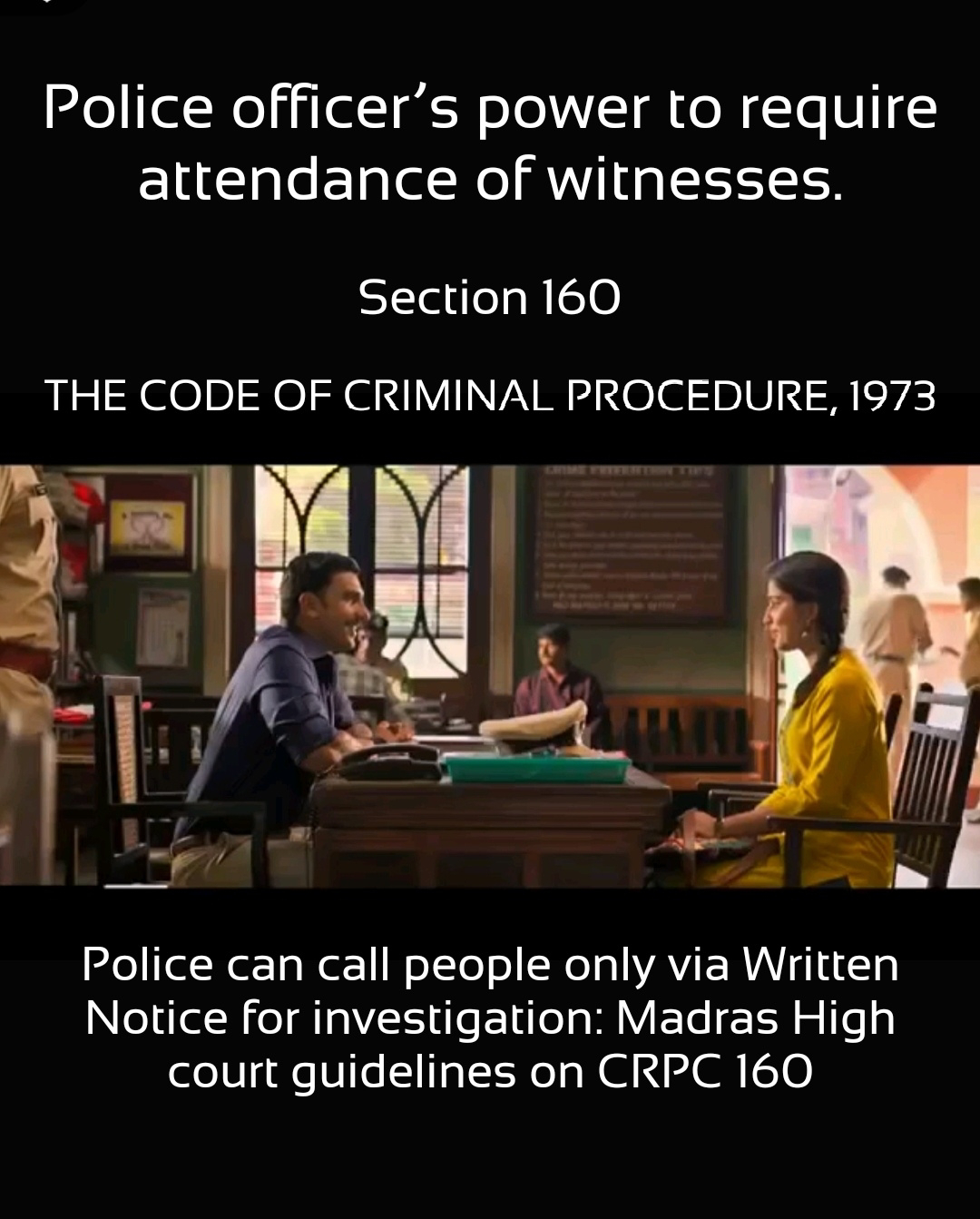Police can call people only via written notice for investigation: Madras High court guidelines on CrPC 160
#CRPC160
Police can call people only via written notice for investigation: Madras High court guidelines on CrPC 160.
Someone from Police Station calls on your phone to ask to pay them a visit for enquiry/investigation/talk etc, is just plain illegal as far as adherence to CrPC is concerned. The only legal way is via a written summons mentioning particular date and time (note: emails can also be taken as written notice).
Police officer has to summon via a written summon, but that summon should also specify a particular date and time for appearing in front of police.
Also note that minutes of this enquiry have to be mandatorily noted in the general diary/station diary/daily diary of Police Station, which means again that the verbal chit-chat police people in Police Station like to engage with accused, without keeping written records, is also not legal. All those probably happen with no entry about visit, or enquiry records anywhere.
Any officer violating this guidelines shall be liable for departmental enquiry & can be sued for contempt of court.
Source:
http://menrightsindia.net/2018/03/police-can-only-call-people-via-written-notice-for-investigation-madras-high-court-guidelines-on-crpc-160.html
Summon letter example:
its summon to Hakeem -- issued under Section 160 of the CrPc (Code of Criminal Procedure), the NIA said "whereas it appears that you are acquainted with the circumstances of the case... you are hereby required to attend before the undersigned at NIA headquarters opposite to CGO Complex, Lodhi Road on July 15 at 12.30 p.m for the purpose of your examination relating to the case".
***
CRPC 160: Police officer’s power to require attendance of witnesses:
(1) Any police officer making an investigation
under this Chapter may, by order in writing, require the attendance before himself of any person being within the limits of his own or any adjoining station who, from the information given or otherwise, appears to be acquainted with the facts and circumstances of the case; and such person shall attend as so required:
Provided that no male person 2[under the age of fifteen years or above the age of sixty-five years or a woman or a mentally or physically disabled person] shall be required to attend at any place other than the place in which such male person or woman resides.
(2) The State Government may, by rules made in this behalf, provide for the payment by the police officer of the reasonable expenses of every person, attending under sub-section (1) at any place other than his residence.
***
Disclaimer:
These guides are not legal advice, nor a substitute for a lawyer. These articles are provided freely as general guides for legal awareness in the Society. Laws are updated/amended regularly by concerned authorities. Please check for the latest & updated laws with your legal advisor.
